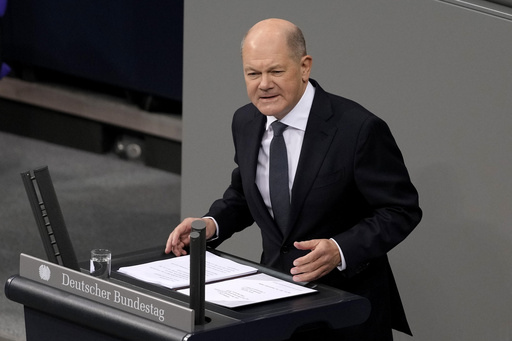In November, the most significant democracy in the world elected a president who had previously attempted to overturn the results of the last election. Shortly after, a significant number of South Koreans gathered in their parliament to oppose the president’s efforts to implement martial law. This juxtaposition illustrates a year characterized by tests of democratic values globally.
Incumbent parties and leaders faced considerable challenges during elections impacting 60% of the global population, reflecting widespread dissatisfaction following the coronavirus pandemic. While this turnout indicated concerning sentiments, it also demonstrated democracy functioning as intended by allowing citizens the chance to replace their leaders.
Thus, the year 2024 presents a scenario where the state of democracy can be construed as both optimistic and pessimistic. The globe saw numerous instances of democracy in action, with citizens resisting coups and challenges from authoritarian figures. Conversely, some of the new administrations took on increasingly authoritarian measures, culminating in instability in notable democracies like Canada, France, and Germany as the year came to a close.
In the United States, Donald Trump concluded his last tenure by trying to contest his defeat against President Joe Biden, inciting a riot at the Capitol as supporters attempted to halt the certification of Biden’s election. This event marked an alarming deviation from the peaceful transfer of power that the U.S. has historically practiced.
Nevertheless, voters chose to grant Trump another term, showing more concern over economic issues like inflation and immigration rather than the threats he posed to democratic principles. Such is the nature of democracy: regardless of the protection of democratic norms, voters exercised their right to replace the sitting party, leading to a legitimate election outcome that some may view with optimism.
Unlike his 2016 election, which relied on a flawed Electoral College system that often diverges from the popular vote, 2024 saw Trump winning both the popular support and the necessary Electoral College votes, gaining traction especially among Latino and Black demographics. This achievement, alongside a high voter turnout that contradicts the narrative that conservatives falter when participation is elevated, provides a new perspective on conservative electoral strategies.
Post-election calm has proven misleading to a degree. Had Trump not secured victory, discussions around anti-democratic sentiments would have continued unabated. His win coincided with political unrest in Canada following Trudeau’s finance minister’s resignation over disagreements related to Trump’s anticipated tariffs and culminated in a government disruption in Germany, not long after similar issues arose in France.
The return of a Trump-led administration aligns with a trend toward the rise of new leaders in the West. However, some observers express concern that a portion of these figures, despite being elected through popular vote, may undermine the checks and balances critical for preserving democratic integrity. Notably, Hungary’s Prime Minister Viktor Orban has exemplified this shift by restructuring judicial and media frameworks to suppress opposition effectively.
Analysts point to Slovakia and its left-leaning, pro-Russian leader, Robert Fico, as potentially navigating a similar trajectory toward authoritarianism. Furthermore, conservative populist parties have made substantial gains in the European Union’s parliamentary elections.
Trump’s presidency also raises alarms concerning electoral violence. He has been the target of multiple assassination attempts, reflecting an increase in election-related violence globally. Reports indicate that out of the 62 elections held worldwide, 26 experienced violent incidents, including attacks on candidates in Mexico and South Africa, alongside voter intimidation in other regions.
The mood surrounding democracy has shifted downward as well, with a recent Pew poll revealing a significant level of discontent among voters across 24 countries, showing that 59% felt dissatisfied with how democracy functions amidst economic struggles and feelings of alienation from political leaders.
Despite these challenges, there remain clear indications of hope for democracy. The same Pew findings highlighted that democracy is still the preferred form of governance. Displays of civic engagement were evident during elections and protests against anti-democratic actions across various nations.
For instance, South Korea was not the only locale to repel anti-democratic maneuvers. In June, Bolivia witnessed a failed military coup against President Luis Arce, as the military retreated after being reassigned by the president. Similarly, widespread protests in Bangladesh led to Prime Minister Sheikh Hasina fleeing in response to the burgeoning opposition against her longstanding regime. In Senegal, efforts by the president to postpone elections were thwarted by the nation’s highest court, leading to an unexpected electoral result in favor of an opposition figure recently released from prison.
In both Botswana and South Africa, there was a peaceful transition of power as long-term ruling parties accepted electoral outcomes. Democracy is dynamic; its vitality relies heavily on each election cycle. The recent political upheavals in Germany and Canada could reflect the efficacy of democracy at work, presenting voters with fresh choices. Alternatively, they may signal a shift toward more authoritarian leadership. The full implications of the year’s electoral events likely will become clearer as the political landscape continues to evolve in the coming years.
